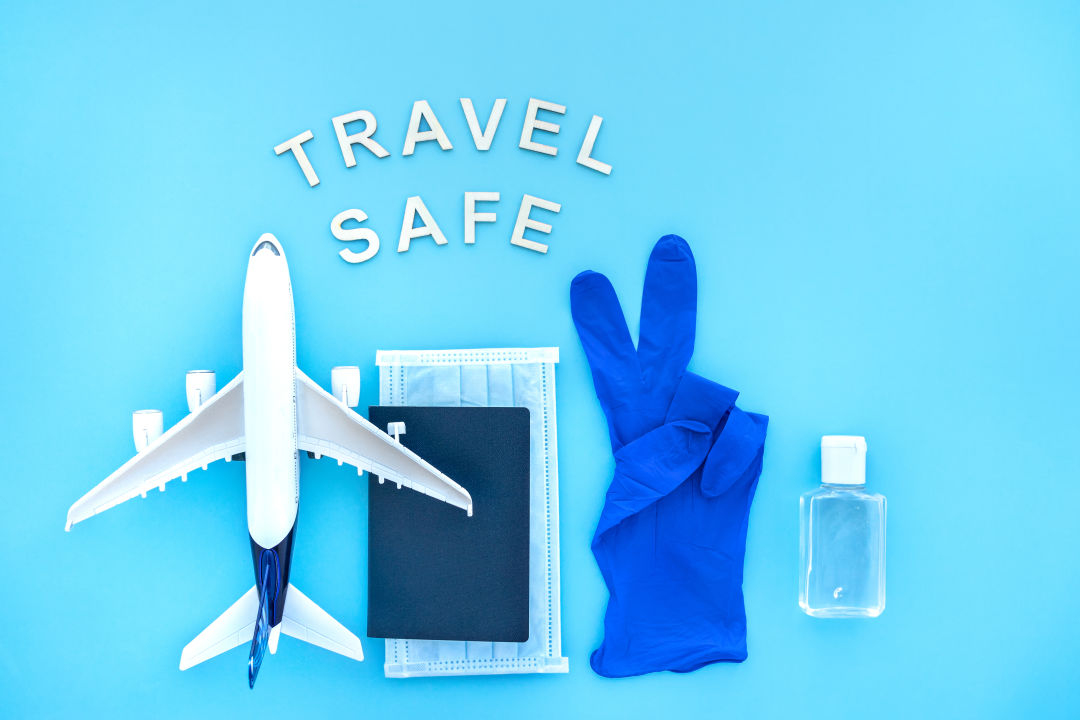Traveling This Summer? Be Brain Safe, and Be Brain Smart

If you have driven I-75 lately or tried to park at Sarasota-Bradenton International Airport, you know that people are traveling again. But before you hit the road (or skies) this summer, it is important to do your homework in order to protect your physical health and your brain health.
The number one recommendation from the Centers for Disease Control and Prevention (CDC) is to get vaccinated against COVID-19 before you travel. As of June 10, the CDC guidelines for domestic and international travel begin with: “Do not travel until you are fully vaccinated.” You are considered fully vaccinated two weeks after the second dose of a two-dose vaccine, such as Pfizer or Moderna, or two weeks after a single-dose vaccine, such as the Johnson & Johnson Janssen vaccine.
While many of you are planning to reunite with family and friends, return to a favorite getaway spot, or book that once-in-a-lifetime trip, it’s important to remember that travel looks very different than it did pre-pandemic. Many parts of the world are still experiencing high infection rates and a rise in COVID-19 variants are limiting access to travelers from some countries.
If you are planning to travel internationally, all air passengers coming to the United States, including U.S. citizens and fully vaccinated people, are required to have a negative COVID-19 test result no more than three days before travel or documentation of recovery from COVID-19 in the past three months before they board a flight to the United States. And even as things are reopening throughout the U.S., there is still a great deal of uncertainty around when and where masks are required, what reopening timelines look like, and how restaurants and tourist destinations are managing their facilities.
If you have not been vaccinated, please keep in mind that the long-term effects of COVID-19 on your brain health are still not fully known. In addition to the respiratory symptoms, data suggest that the virus may affect the brain, with more than one-third of infected patients developing neurologic symptoms including loss of smell and taste, short-term memory loss, confusion, inability to concentrate, and just feeling “different.” Researchers have also found that nearly one in five people diagnosed with COVID-19 are diagnosed with a brain illness, such as anxiety, depression, or insomnia, within three months of contracting the virus.
When it comes to protecting your brain health and traveling safely, your best source of information may be the CDC website. If you are fully vaccinated, the CDC recommends:
- Wear a mask. Masks are required on planes, buses, trains, and other forms of public transportation traveling into, within, or out of the United States and while indoors at U.S. transportation hubs such as airports and transportation stations. Masks are not required in outdoor areas.
- Follow all state and local recommendations and requirements regarding mask wearing and social distancing.
If you are not fully vaccinated, the CDC recommends:
- Get tested for COVID-19 one to three days before your trip.
- Wear a mask. Masks are required on planes, buses, trains, and other forms of public transportation traveling into, within, or out of the United States and while indoors at U.S. transportation hubs such as airports and transportation stations. Masks are not required in outdoor areas.
- Avoid crowds, and stay at least six feet from anyone who is not traveling with you.
- Wash your hands often, or use hand sanitizer.
- Get tested three to five days after travel AND stay home and self-quarantine for a full seven days after travel, even if you test negative. If you don’t get tested, stay home and self-quarantine for 10 days after travel.
- If your test is positive, isolate yourself to protect others from getting infected.
- Avoid being around people who are at increased risk for severe illness for 14 days, whether you get tested or not.
- Self-monitor for COVID-19 symptoms; isolate and get tested if you develop symptoms.

The Brain Health Initiative (BHI), a 501(c)(3) nonprofit organization, is a cutting-edge approach to protecting brain health, promoting brain performance, and fighting brain illness across the lifespan. The BHI is creating brain healthy communities, cultures that foster brain health protective factors and address risk factors, thereby improving brain health and optimizing brain performance outcomes for the Florida Suncoast region and beyond. Join the BE BRAIN HEALTHY movement, because brain health matters, and lifestyle makes a difference.



